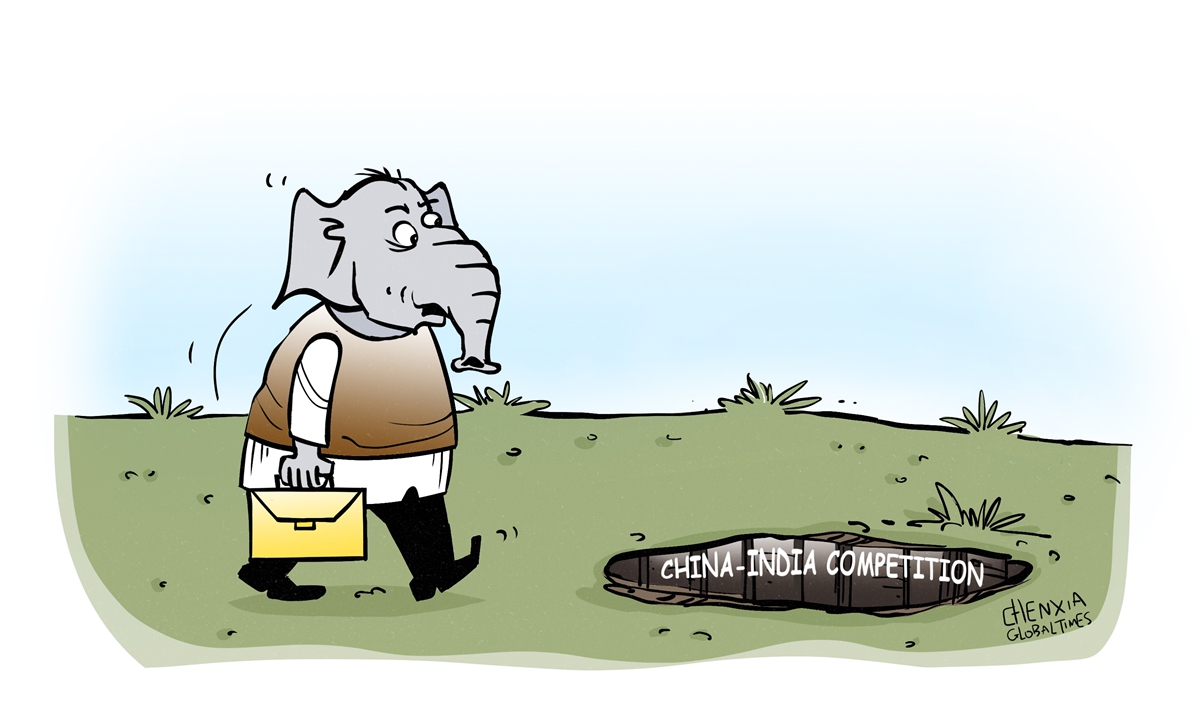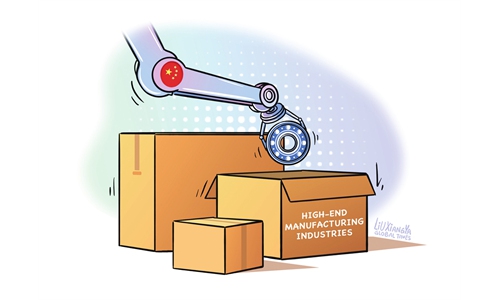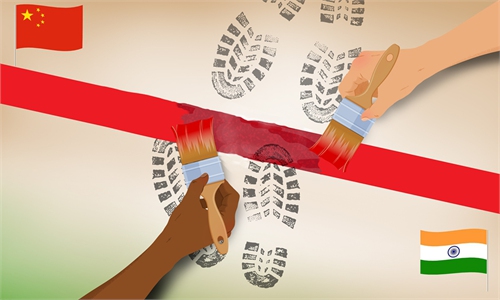
Illustration: Chen Xia/Global Times
It is costly to shift supply chains, and Western companies will soon realize this if they attempt to diversify their supply chains away from China to countries like India.The Financial Times (FT) published an article on Wednesday saying that Apple wants batteries for its latest generation of iPhones to be manufactured in India, as part of the US tech giant's efforts to diversify its global supply chains and move manufacturing out of China. The news follows reports in the media that Tesla is planning to double the number of components it imports from India.
India's electronics manufacturing sector has witnessed substantial growth in recent years. The greatest challenge for further development lies in supply chain worries, as the country relies heavily on imports to meet some of its vital needs, such as electronic components.
For instance, almost 90 percent of the components used for Apple phones by Tata are sourced from the Chinese mainland, even as Apple looks to shift manufacturing to India, according to an Economic Times report in May. For years, Apple has relied on a vast manufacturing network in China to produce iPhones, iPads and other popular products. It's a complex industry chain that cannot be changed overnight.
Amid Washington's calls for "decoupling" or "de-risking," which are hurting normal China-US economic ties, many believe India can play a role in supply chain diversification as it is fast becoming a beneficiary of changes in global trade patterns. In the view of these people, the close connection of industry chains between China and India is not mutually beneficial. Instead, they hype so-called "China-India competition," saying India can position itself as an alternative to China in global supply chains. However, using a zero-sum game mentality to deal with reciprocal supply chain cooperation will harm others and India itself.
India's economic success in recent years has attracted a lot of attention, but the nation still has a long way to go in building a resilient supply chain that can fully meet the needs of well-known manufacturing enterprises like Apple and Tesla. For instance, a FT report published in February highlighted that at a casings factory in Hosur run by Tata, one of Apple's suppliers, just about one out of every two components coming off the production line is in good enough shape to be sent to Foxconn, Apple's assembly partner for building iPhones.
We cannot rule out the possibility that India may encounter more difficulties in producing batteries due to the complexity of its technology.
To become globally competitive, India's manufacturing supply chains must increase their productivity, but that is not an easy task. Moreover, India is facing external pressure due to a rising tide of de-globalization and trade protectionism.
Once India establishes an advantage in supply chains, the country will face "decoupling" pressure from Washington, similar to what China is currently experiencing. The US is one of the few countries with which India has a trade surplus. As US-India trade continues to grow across various sectors, disputes may also increase.
China, on the other hand, has a complete industrial system and a comprehensive supply chain. China is making great efforts to ensure that core technologies are self-developed and controllable, while maintaining control over innovation and development.
China's position in global supply chains is unlikely to be shaken by India. Despite Washington's calls for "decoupling" or "de-risking," China's advantage in industry chains is actually strengthening rather than weakening.
If some Western companies plan to relocate their industry chains out of China, they will face increased production costs and ultimately suffer losses. Their efforts will be futile in the end.
It is hoped that India won't fall into the trap of engaging in a "China-India competition." From an economic perspective, strengthening industry chain cooperation with China, rather than seeking to replace China's industry chain, will help India maximize its interests amid global industry chain restructuring.
The author is a reporter with the Global Times. bizopinion@globaltimes.com.cn



